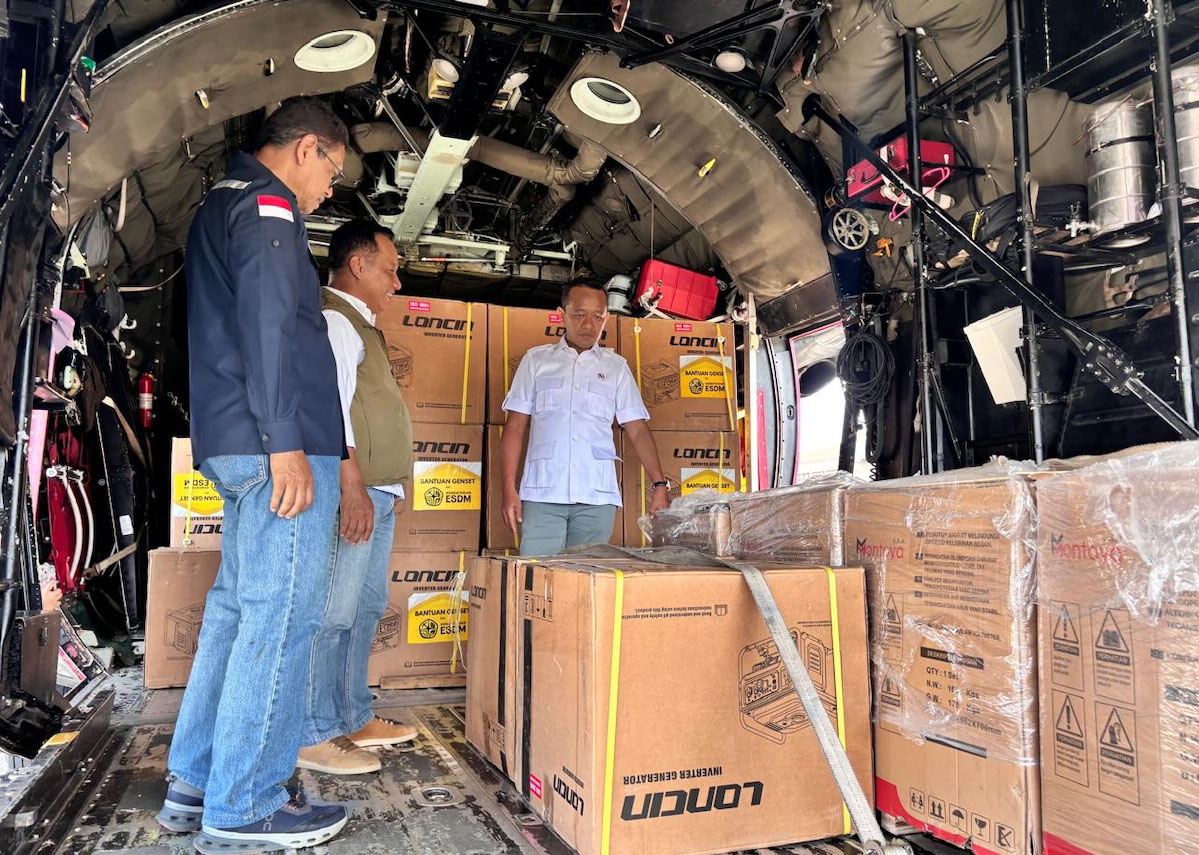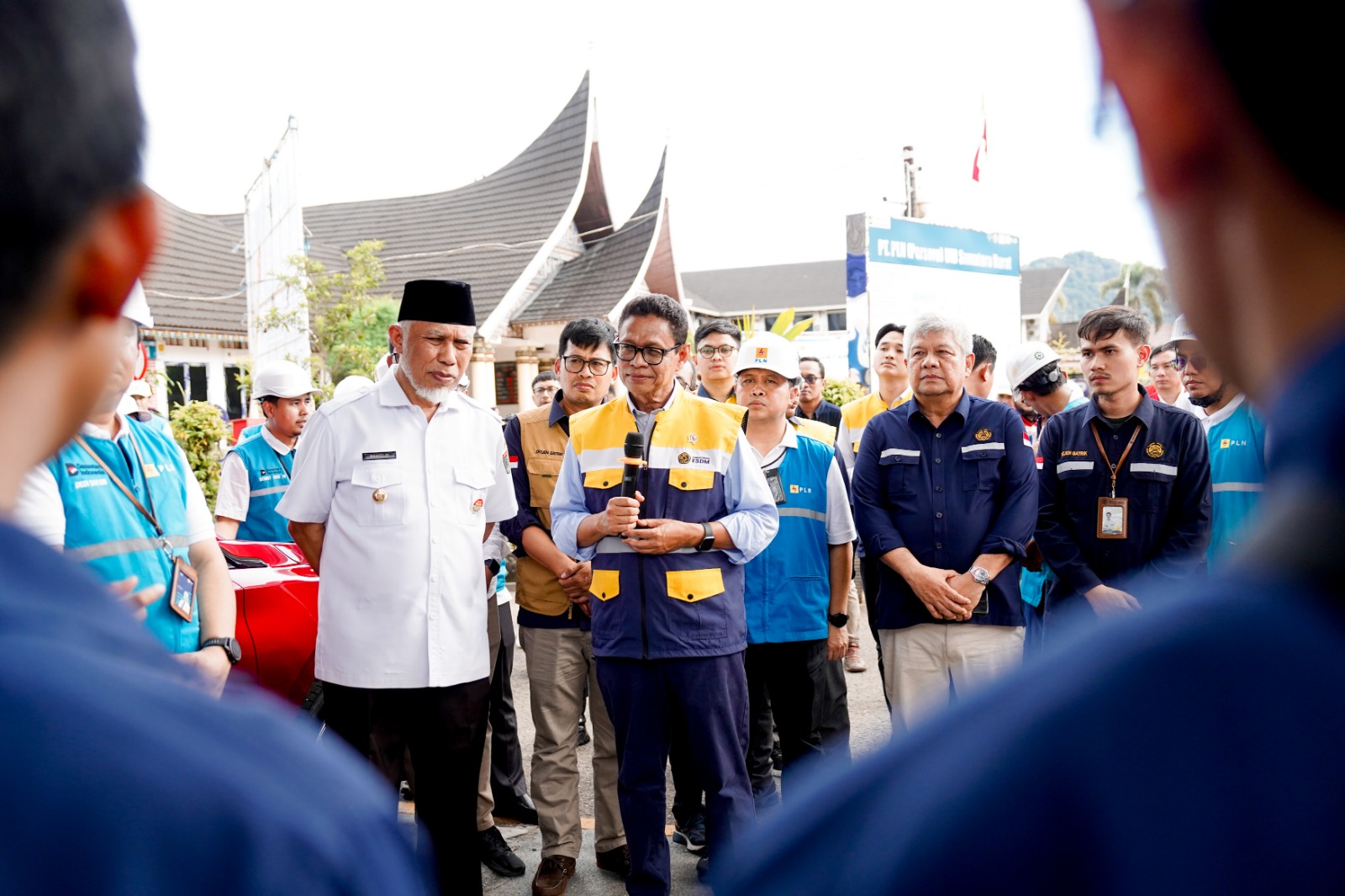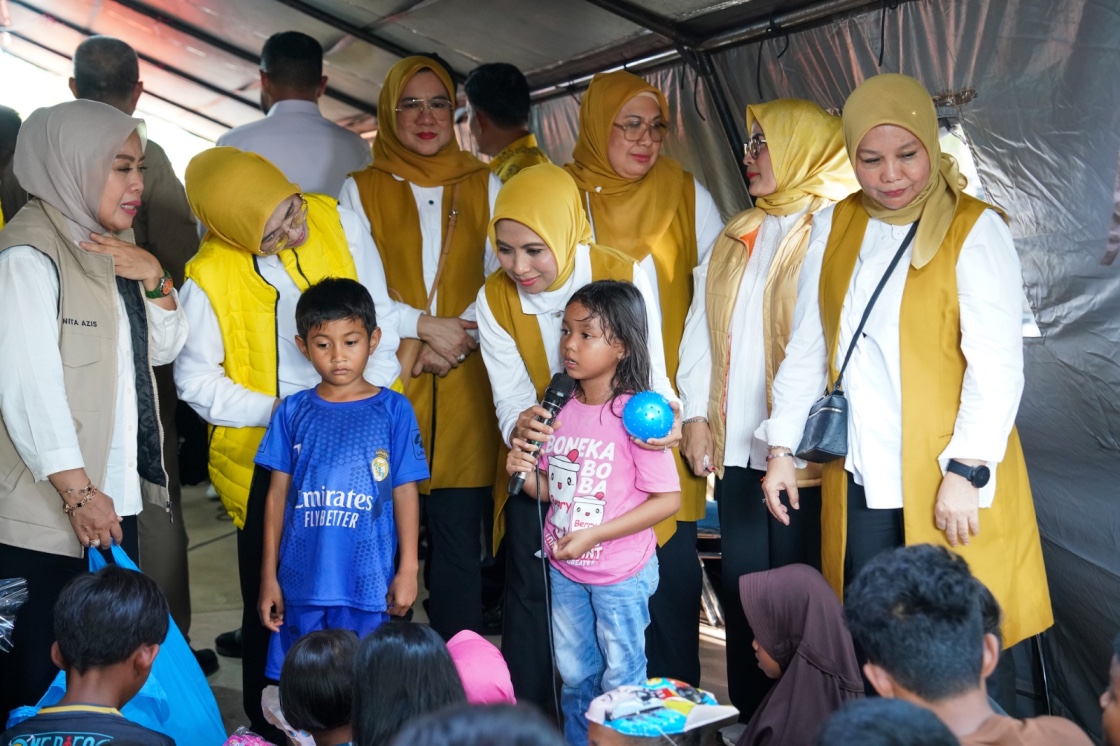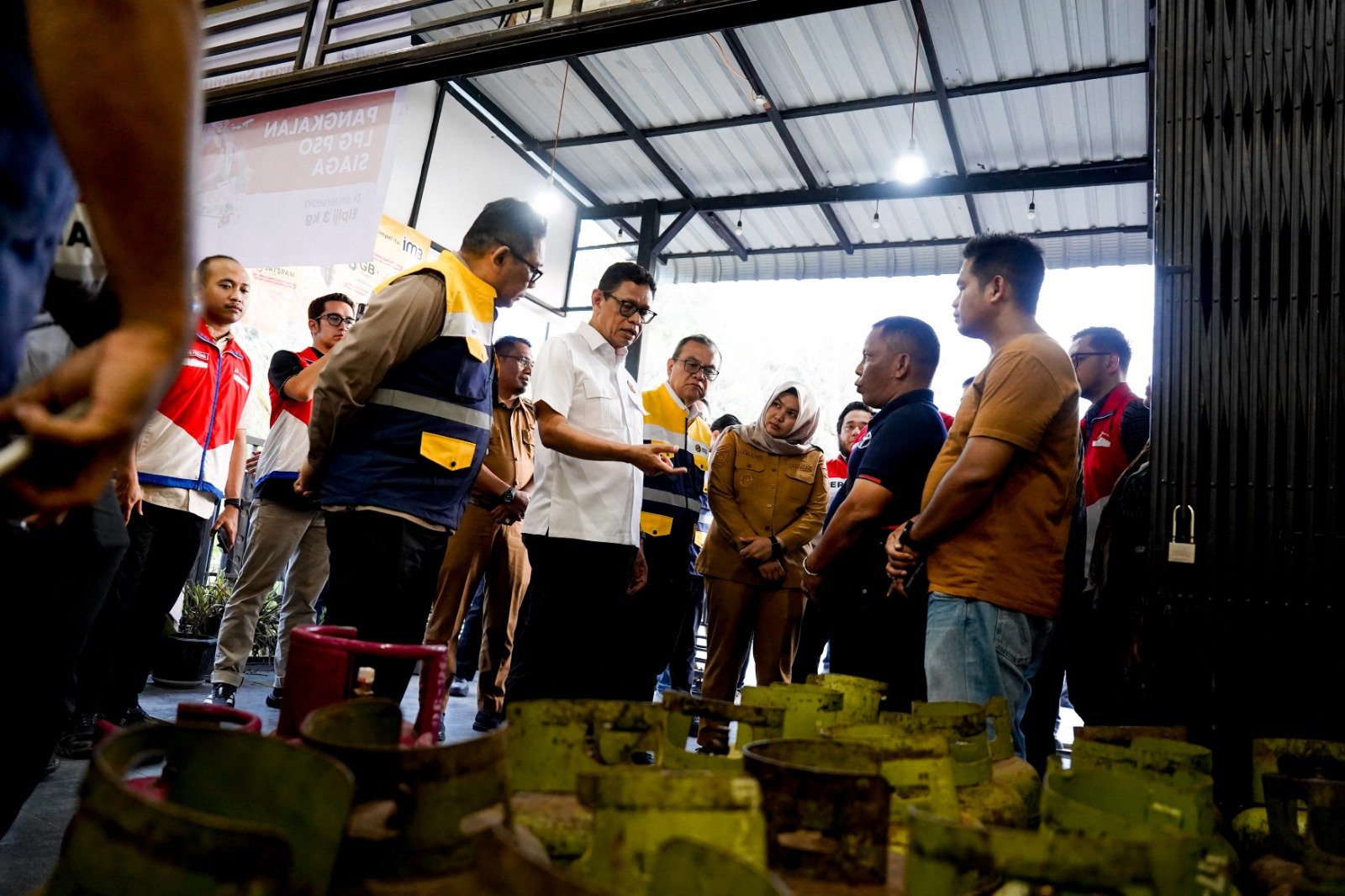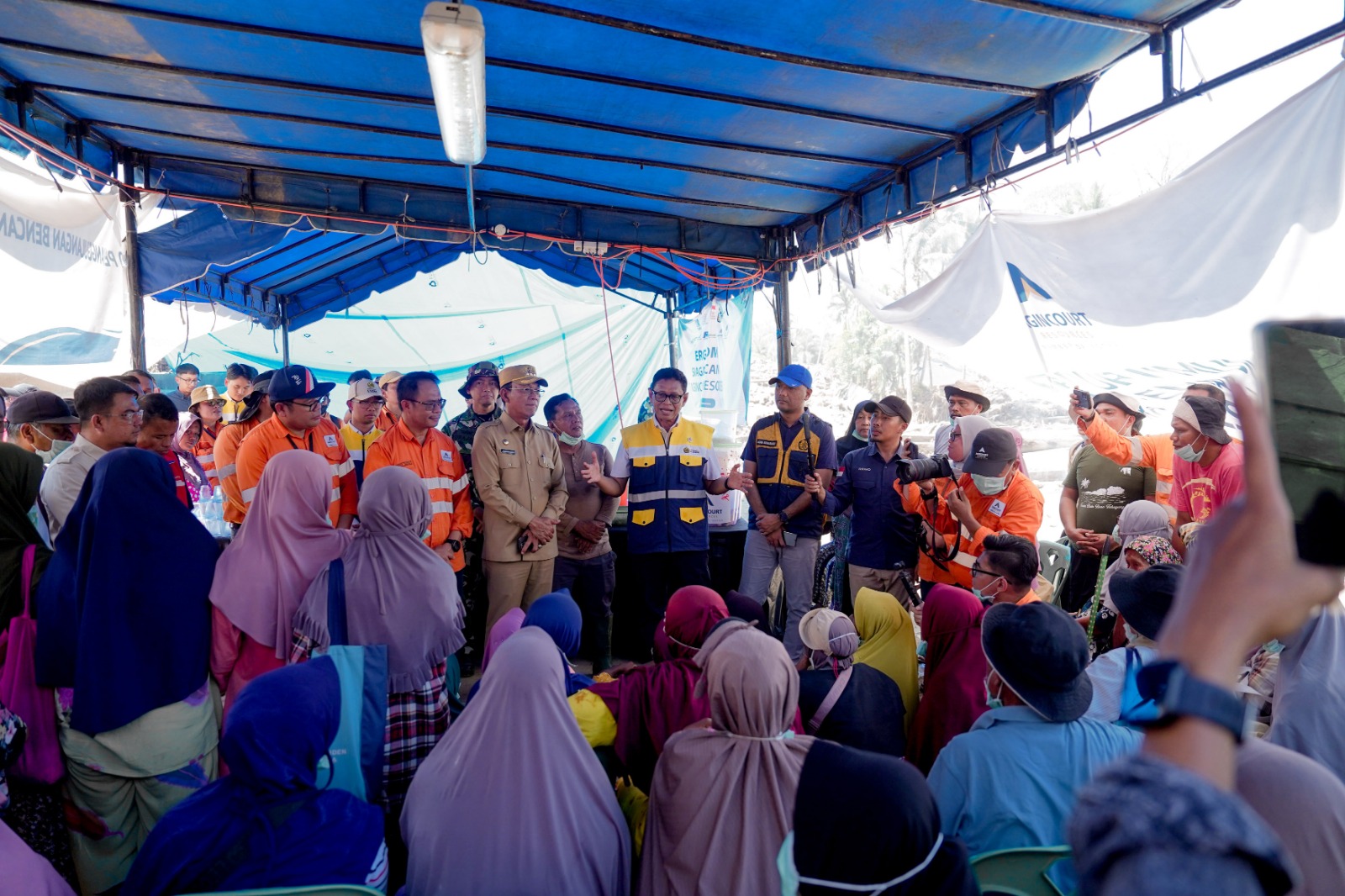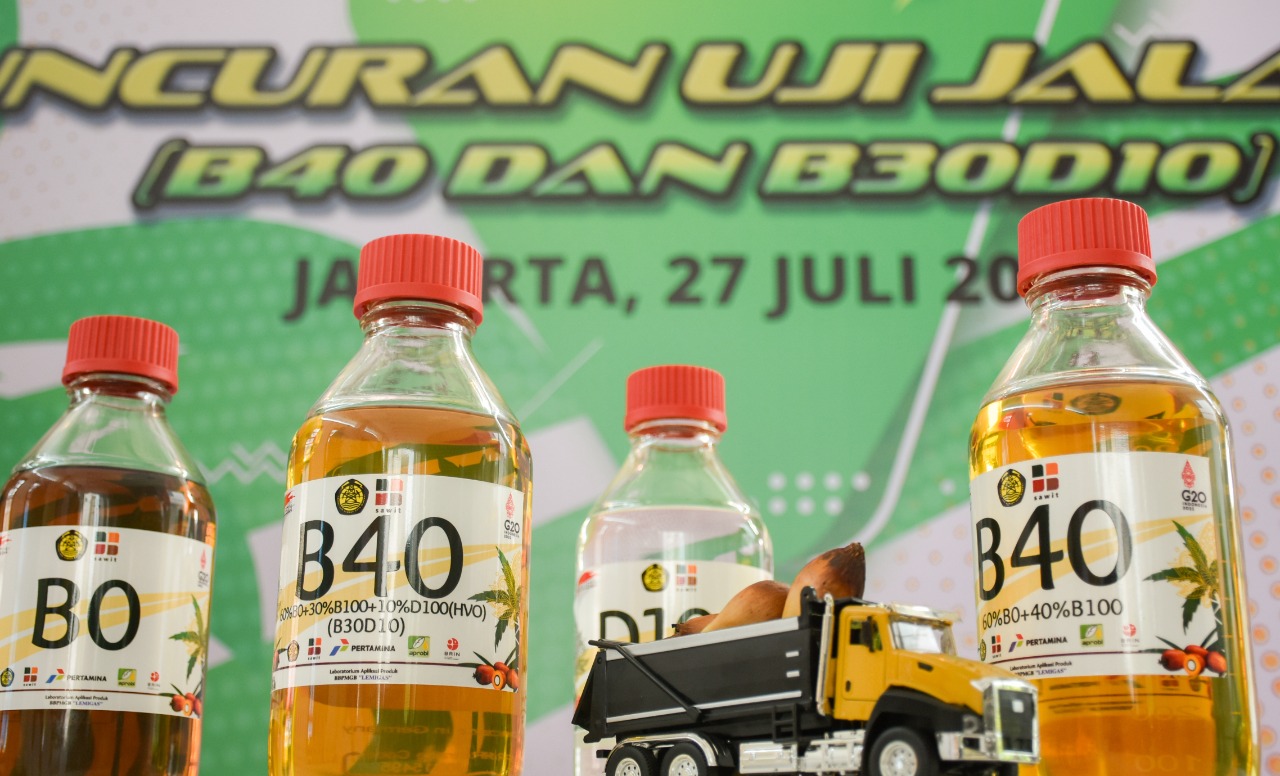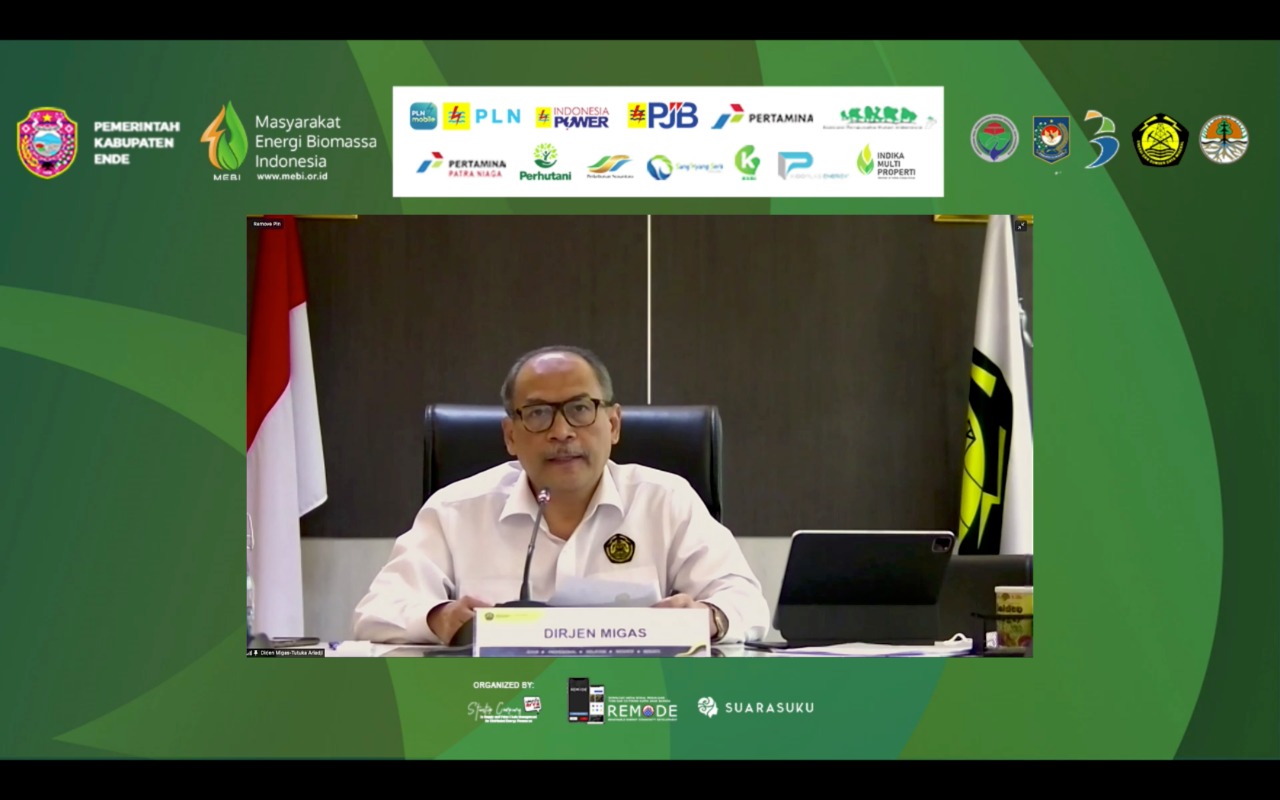
PLN, Ende Gov’t Sign Contract to Co-fire Ropa Power Plant with Biomass
MINISTRY OF ENERGY AND MINERAL RESOURCES
REPUBLIC OF INDONESIA
PRESS RELEASE
NUMBER: 388.Pers/04/SJI/2021
Date: 31 October 2021
PLN, Ende Gov't Sign Contract to Co-fire Ropa Power Plant with Biomass
The signing of Sales and Purchase Contract of TOSS Pellets for the Cofiring Program at Ropa Coal-fired Power Plant took place in a hybrid manner in Ende, East Nusa Tenggara Province on Thursday (28/10).
Director General of Oil and Gas, Tutuka Ariadji, who represented the Minister of Energy and Mineral Resources (EMR), expressed the Ministry of EMR's appreciation for the signing.
"We highly appreciate the efforts of the TOSS Ende Team, which consists of Ende Regency Government, Comestoarra, PLN's UPK Flores, and non-profit organization ACIL that have continued to support energy transition through their attempts to provide renewable energy. PLN's Green Booster Program includes cofiring at existing coal-fired power plants by using biomass, which come from household garbage or trash, industrial wastes, and energy plants," said Tutuka in a virtual speech.
Tutuka went on to say that cofiring would certainly impact positively on the contribution of new, renewable energy (NRE), which in the National Energy Policy had been targeted at 23% by 2025. Fulfilling this target is a shared responsibility. "We have a lot of homework in fulfilling this target and, therefore, various breakthroughs and innovations are needed for acceleration," Tutuka added.
According to Tutuka, energy substitution is an easy, fast, and economical action, especially during the Covid-19 pandemic when energy demand drops and investment funds are limited. Energy substitution for the short and medium terms is a smart choice to promote NRE use without burdening PLN and the government with subsidies.
Biomass cofiring at coal-fired power plants is not something new. Many countries in the world have succeeded in "greening" their coal-fired power plants with biomass cofiring, and some have even replaced coal with 100% biomass. In the future, Indonesia will also reduce the number of existing coal-fired power plants, and replace them with cleaner power plants.
"PT PLN and local governments are also expected to have a strong spirit and commitment to providing more environmentally friendly energy for all," said Tutuka.
Besides increasing the amount of renewable energy contribution to the national energy mix, the biomass cofiring projects, especially those based on household and industrial wastes, also have positive impacts of developing a productive people's economy (circular economy), creating jobs, and reducing greenhouse gas emissions in which the energy sector is expected to make a major contribution.
The two biggest challenges of running a biomass cofiring project are the availability of sustainable feedstocks and price. In the short term, the government encourages a cofiring project to be adapted to the feedstocks available in the local area so as to reduce transportation costs, which will in turn reduce feedstock prices.
The feedstocks for cofiring are very diverse. For example, PT PJB succeeded in its Go Live Commercial with sawdust, PT Indonesia Power worked out its Go Live with solid recovered fuel (SRF) and rice husk, Ketapang and Sanggau coal-fired power plants did well in their Go Live Commercial projects with palm shells, and Ropa coal-fired power plant will use TOSS pellets produced by Ende communities.
"This shows that the biomass feedstocks for cofiring are very flexible, because they can be adapted to the local biomass potential while still paying attention to technical standards and the needs of the power plants. Thus, local entrepreneurs and communities can be actively involved in cofiring program so as to support the creation of people's electricity economy," said Tutuka.
The government hopes that the program will be implemented in a sustainable manner and the percentage of biomass mix increased. For this reason, the upstream side of feedstock provision must be established and developed well.
For the record, the contract signing was made between the Flores Generation Unit (UPK) of PT PLN (Persero) and Pancasila New Energy Cooperative, a consortium of cooperative and small-medium enterprises set up under the support of Ende Regency Government. The signing is an important milestone in the development of biomass cofiring at Ropa coal-fired power plant because the power plant will utilize pellets produced by Ende's local recycling center (TOSS).
The Ende TOSS is a solution for the management and processing of municipal solid waste (MSW) in Ende Regency. It will provide cofiring feedstocks that support people's electricity ecosystem. This way, the recycling center will help substitute kerosene and firewood which are still widely used by the people of Ende.
Moreover, the Ende TOSS revives the culture of communal work ('gotong royong') in cleaning up trash and the environment in Ende Regency and helps the economic recovery of Ende people from the Covid-19 pandemic. (IY)
Head of Bureau of Communication, Public Information Services, and Cooperation
Agung
Pribadi (08112213555)
Share This!

